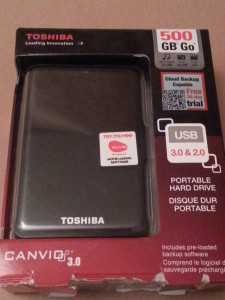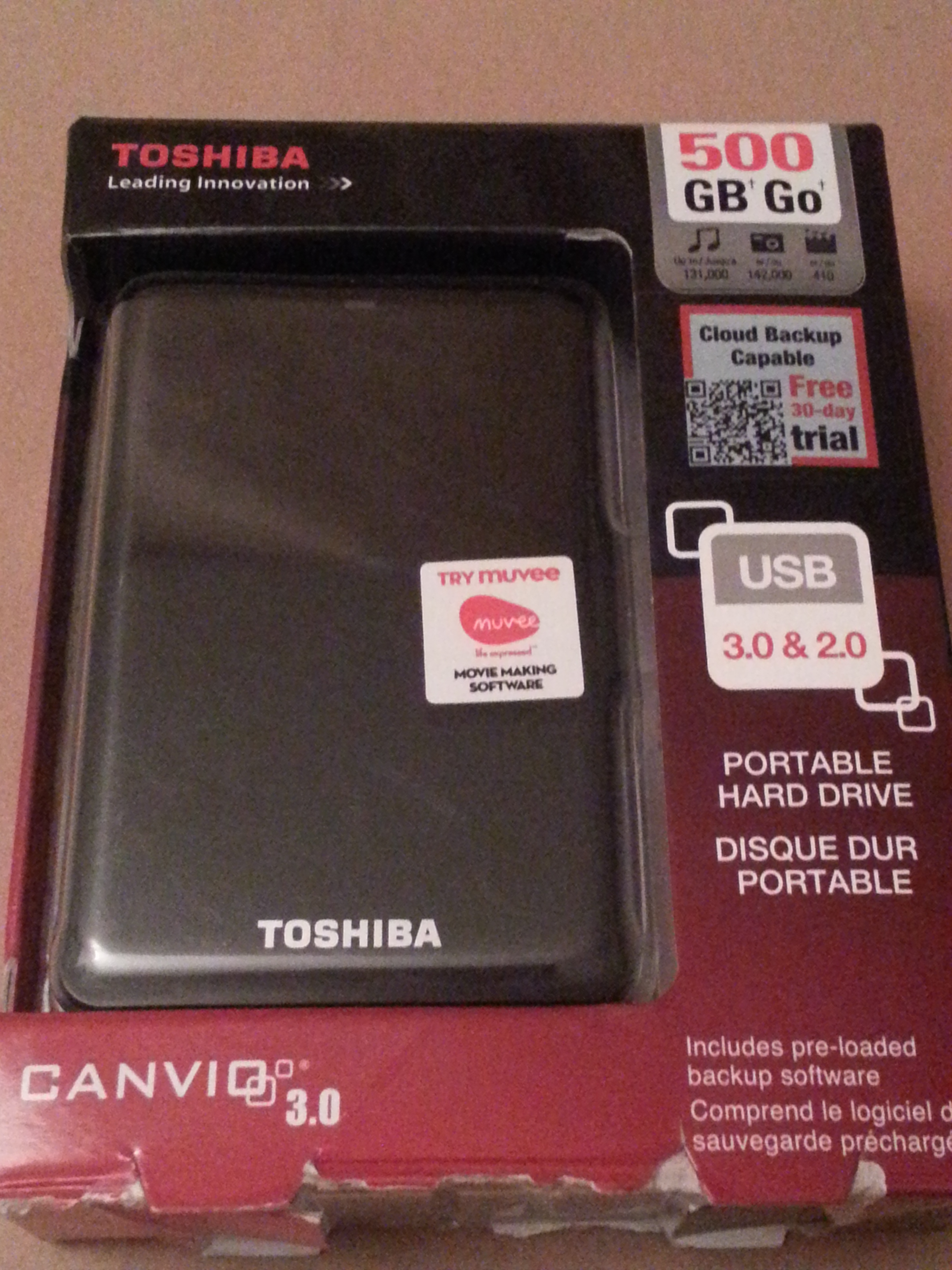6 Lazy Ways to Increase Savings
I like to be lazy and I like to save money so I have discovered a few easy lazy ways to increase savings rates.
- Use direct deposits – One of the foundational lazy ways to increase savings is only deposit what you require to meet your needs into your regular bank account. This will help to prevent you from spending more than you have budgeted. It will also prevent lifestyle creep (the tendency to spend more as you make more) because you will not see your raises when you get them, you won’t spend them.
- Automate your savings – I use Capital One 360 because it lets you have virtual envelope savings accounts. I deposit money into my main acco
 unt there and then it is automatically transferred into various savings accounts which are earmarked for various needs like Christmas, Insurance etc.
unt there and then it is automatically transferred into various savings accounts which are earmarked for various needs like Christmas, Insurance etc. - Automate your investing – For this I use Betterment, money is again automatically transferred every paycheck into long term investment accounts. I can’t forget to do it. I would have to make an active decision to stop investing. It helps keep you goals on track, and you don’t even have to think about it.
- Sign up for your 401(k) – Seriously, if you are not taking advantage of your 401(k) and any match your company may give you, start yesterday. Any money your employer matches is a guaranteed gain. Why would you turn that down?
- Consider a bi-weekly mortgage – If you may half of your mortgage payment every two weeks you will end up making 13 payments a year. This small change can save you tens of thousands in interest over the course of a mortgage. it will pay off your 30 year note in 25 years. Some banks don’t accept partial payments, however, so you need to check with them.
- Coin jar – If you use cash at all at the end of the day drop your change in to a jar of some sort, or one of these nifty Coin Sorting Banks
. When you cash it in move the money immediately to savings.
Just a few lazy ways to increase savings. These methods will improve the rate you are saving money with only a little up front work on your end. They pay remarkable dividends down the line.
This article contains affiliate links
Image by 401(K) 2013
5 Easy Ways to Save and Recycle Around the House
There are always people selling products that you can make yourself. I have found some easy ways to save and recycle around my own garden that you may help you.
Plastic Milk Jugs as Watering System — I have used these to help me save time while I water my plants and water more effectively. I put a few small holes in the bottom of the bottle and fill it with water and then set it at the base of my berry bushes. The water seeps out slowly allowing the water to sink in and water deeply instead of just on the surface forcing the roots deeper in to the ground for a healthier plant. If you use just one small hole at the bottom and one at the top it is a great homemade drip irrigation method. You don’t lose water to evaporation like you can with sprinklers and you don’t water where you don’t want plants so weeds have a tougher time growing.
I have also buried half gallon jugs in the ground again with holes poked in the side beside the plant and then filled it up with water and capped it. The water seeps out slowly again watering the roots of the plants and making for stronger plants.
Homemade Mulch — We have a large mulched area in our back yard and we also had a bad ice storm tear through our area that took down a lot of our trees. So we rented a chipper and went to town, in just an hour we had a lot of mulch to help cover our garden. I wouldn’t recommend putting it near the house because of insects but this is at the back of our property. The money I spent on the chipper was less than the cost to have the waste hauled away, or to buy enough mulch to cover the space.
Compost – If you have houseplants or a garden you probably already know the value of compost, but did you know there are ways to compost that don’t involve large piles of waste and that smell? There are plenty of plans on the Internet to build a worm compost bin. Worms eat your food scraps and produce great compost. I recycled two plastic storage bins to build my compost bin. As we were cleaning our out our house and eliminating junk we had extra bins.
Plastic Containers — A lot of cold cuts not come in clear plastic containers that are perfect for washing and using again. In fact they look exactly like a name brand storage container. Why pay for new plastic storage containers when you already have some in your meat drawer.
Newspaper pots – If you still actually get a newspaper, I pick up a few just for this tip now, you can make biodegradable seedling pots from them. Here is a great instruction over at instructables.
7 Stewardship Principles
 There are certain stewardship principles that encompass all other tips we can express. They are not sure fire paths to riches but principles that should guide any Christians view of money.
There are certain stewardship principles that encompass all other tips we can express. They are not sure fire paths to riches but principles that should guide any Christians view of money.
- Be generous first – Deuteronomy 26 calls for a sacrifice of the first fruits of the harvest as a sacrifice. It is a principle of the Bible to give the first to God and not to wait to give your leftovers. You will always have money for what you pay first. People often say they can’t give any money to the Gospel but it is often because they wait until after they have spent it all to think about giving.
- Pay yourself second – Similar to #1 you should pay your self second. If you wait until the end of the month to invest what is left then you will regularly find you have little or nothing left for yourself.
- Have a plan for your money – There is an old cliche that says “Failing to plan is, planing to fail.” I say it this way, “Your money will be spent somehow; you can decide where or let it to chance” You should create a plan on how all of your money is going to be spent. That doesn’t mean just when going to the store, but where you will invest it. Have a plan for all of your money. Call it a budget, or a plan but you have to know where your money is going.
- Don’t leave money on the table – We do it all the time in many ways; here is how to avoid a few of them. Negotiate on everything. You never know when it could save you some money. Make the most of your 401(k), make sure you are getting all the match you can.
- Spend less than you make – This should be obvious to anyone not in government but you can’t survive for long spending more money than you bring in. Eventually those bills will come due.
- Have an emergency fund – Start with a baby fund of $1000 or so, because everything thing that goes wrong seem to cost around $1000. And then move to having 3-6 months of expenses set aside in case you lose your job or have some other financial emergency.
- Understand your insurance needs– Insurance can be an important part of your financial plan. Depending on your situation in life you may need more or less. Insurance can prevent certain financial disasters. A cheaper premium may be cheap for a reason, so research before you do business with any company.
These stewardship principles are crucial to getting off on the right foot. In fact if you were able to stick to all 7 you would be better than 95% of people in America.
image by Dee’lite
First Ebay Sale
 As part of my New Year resolution I have posted my very first Ebay sale. It is a hard drive that has been sitting on a shelf in the box for a while now. The reason for the sale is two fold; we are looking to save up for a down payment for a house and so I am going to try to sell some things we have had around the house that we no longer need and secondly our house feels too crowded with stuff and we are looking to simplify and get rid of things we no longer need or use.
As part of my New Year resolution I have posted my very first Ebay sale. It is a hard drive that has been sitting on a shelf in the box for a while now. The reason for the sale is two fold; we are looking to save up for a down payment for a house and so I am going to try to sell some things we have had around the house that we no longer need and secondly our house feels too crowded with stuff and we are looking to simplify and get rid of things we no longer need or use.
A lot of things have changed since I last looked at selling things on ebay which made my first ebay sale much easier.
- Setting up the listing was incredibly simple – I was able to model my listing after others already in the system and it took care of most of the information for me. I took a few pictures with my phone and up loaded them.
- Shipping was a breeze – I was very conserned with how to deal with shipping. I don’t ship a lot of things and I did a little research with UPS and USPS but turns out ebay has you covered there as well. They knew my product and suggest a flat rate USPS option that I had already concluded I needed. It made me feel much safer.
- Anyone can do a “Buy it Now” – Last time I has looked into it (admittedly a long time ago) only experienced sellers could do a buy it now sale. Meaning you don’t have to play the auction game but could simply buy it outright.
The item sold after a week for $35, which is more than I paid for it. All in all Ebay has improved a great deal since the last time I had looked into selling. It could be a great way to earn some money and simplify your life by getting rid of some things you no longer need.
Maximize Employer Benefits 5 tricks
If you have a decent job you probably have some benefits you are not taking advantage of or maybe not even aware of. This article will show you 5 ways to maximize employer benefits. There may be many ways you are leaving money on the table by not taking advantage of benefits that you employer is offering.
1. The 401(k) – Maximize it for employer contributions
A 401(k) is an employee sponsored retirement account. Many companies match your contributions at one level or another which means you may be leaving money on the table if you are not using this plan. Find out what your company does for a match and at least contribute the maximum amount they match.
For example if your company matches 100% up to 4% of your salary like mine does then you should at least contribute 4% of your salary because you are doubling your money. If the company match is 50% up to 4% you should still contribute 4% because a 50% return on your money is still better than most you will get on the market and more than you are paying on any debt you have, unless you are into Frankie the Shark for some money in which case you should pay him first.
2. FSA – Use it to reduce taxes.
A Flex Spending Account allows you to set aside up to $2500 pre-tax dollars to pay for medical expenses in a given year. That means you subtract up to $2500 from the money you are paying taxes on. Keep in mind you can only roll over $500 dollars of that money the rest is use it or lose it; And the Affordable Care Act eliminated the ability to use an FSA to pay for over the counter products to soak up any extra you would have at the end of the year so be careful.
Think about any prescriptions you have or glasses you may need as well as any co-pay you may have to determine how much you may need and aim low because if you don’t use it all it goes back to your employer.
3. Dependent Care Spending Accounts – Reduce more taxes.
These accounts are very similar to the FSA but The dependent care account reimburses dependent day care expenses necessary while you (and your spouse, if you’re married) are attending school on a full-time basis or working. Typically, these would be day care expenses for children, but you can also use this account to reimburse day care for other dependents, such as spouses, parents, or grandparents, who cannot care for themselves. Your dependent must live in your home at least eight hours a day.
There are a lot of technicalities on this one so make sure you understand the detail of how it works. For example I put money into pay for preschool but could not pay for the whole year (as I thought) because the period spanned over two calendar years and I was only able to pay for the calendar year I was in.
4. Tuition Reimbursement – Why not get paid to go to school
Many companies offer tuition reimbursement of some kind if you wish to get a degree or further your education. Many require it to be in the field you are working in and some require you to work for the company for a number of years after you last take the reimbursement but you can often pay the money back.
5. Professional Development – Get paid to get better at what you do.
Many professional companies have training budgets. Our managers tell us that it often goes unused because no one takes advantage of it. If your field offers certifications the company may pay for the training or it may pay for the testing required for the certification.
There may be other ways you can maximize employer benefits; it it all depends on what your company has to offer. Take a look and ask around. Often there are benefits that are almost secrets in companies.
Betterment Review
I have been using Betterment since February of 2012 for my long term investment and savings. I have wanted to do a Betterment review for a while but wanted to break it in before I gave my opinion. Betterment is a website that makes investing simple enough for everyone. It makes investing stress free and easy. I have tried picking my own stocks but fees ate up whatever profit I may have gained. Betterment’s fees are incredibly low and they allow you to set a risk level you are comfortable with for all you different savings goals.
Getting Started
If you are trying to save money you know now is a bad time. Low interest rates are great if you are looking to buy a house but if you want to save your money low interest rates are not your friend. Unless you have 50,000 or more to invest a lot of firms won’t even talk to you. This is one of the reasons I love betterment.
Betterment breaks down your accounts by the goal you are looking to achieve. So, when you create a new account it will ask you to select a goal. Like Safety Net, IRA, Educational.
Then you simply answer a few questions about your goal. How much would you like to have in that goal at what time? Do you need 20K in 10 years for a child’s education? How much can you start with? Based on those questions Betterment will recommend a portfolio on a simple Stocks(Risky but rewarding) v. Bonds (More secure but less reward) scale. So, for our down payment goal which we hope to use in the next few years we are less risky and have 80% in bonds but in our daughters college accounts which won’t be needed for 10 years at least we use 80% stocks. It will also tell you how much you need to deposit each month to reach your goal and that can be automatically done through Betterment as well and automatically drafted from your selected checking account.
Customer service was remarkable when I called Betterment to see why I couldn’t have more than three goals. (This was early on the now allow many more) I got a real person almost right away who was very helpful and got me into the beta test for more goals.
Returns
So far the best thing about Betterment besides the automation, which I am a big fan of has been the returns. Keeping in mind that past performance does not indicate future performance and all that we have had some great returns for our the college funds. The total balance has some more conservative accounts like our house down payment account but over all I have been very please with the returns. The functionality of the site is superb making it very easy to get started saving with more than .25% interest rate or whatever banks offer these days. They even let you try it out for 30 days free.
Fees
The fees are simple and inexpensive as well.
- If you deposit less than $100 per month it is a flat $3
- If you auto deposit at least 100$ a month your fee is a flat .35%
$5000 = $1/month - If you have $10000 or more across all of your goals your fee goes down to .25%
$10000 = $2/month. - Over $100,000 in all of your goals and your fee is only .15% and you get many other options to customize your plan.
Over all if you are ready to make the move into having your money make money for your Betterment is a great way to get started.
This article contains affiliate links… You get $25 and I get $10 if you sign up through these links…Betterment
Organize Your Finances
I am not normally one for New Year’s Resolutions but with that time of year coming up it is time to look at how to organize your finances.
This isn’t something that anyone really looks forward to but it is something most of us wish we would have done earlier. You can follow the “Why budget; just make more money” model but not all of us have the ability to do this.
- Create a budget – This topic has been written about previously on this site. If you have no budget at all this is the place to start
- Improve your budget – A few tips and tricks to help you improve any budget you already have.
- Take a look at your withholdings and give yourself a raise.
- Review these tips to see if you there is anything you can do to save some money.
- Start an investment account at an easy to use firm like Betterment
This is a good time to review your financial plan and see if you are heading in the right direction. Especially before you blow all of your money on gifts that people will only return.
Image by artisrams
Article contains sponsored links
What is a 401(k)?
What is a 401(k)?

Photo by 401k 2013
As I have written previously I work with a lot of college students in our church as a part of my ministry there. There are always questions about 401(k)s; What they are how they work. The fact is that many people simply don’t understand this very important retirement vehicle.
So, what is a 401(k)? It is a savings plan named after the section of the law that created it. It allows an employee to take a portion of their pre-tax income, up to $17,500 for 2013,(Those over 50 are allowed to add $5,500 to that amount) to a qualified employer sponsored investment plan. Many employers choose to match their employees contributions to some degree adding additional money to the pot.
So, what do those things mean? Pre-tax dollars means that the money contributed to your 401k are not counted as income when you are taxed. If your paycheck was $1000 and you contribute $100 to your 401k then you only pay taxes on $900. ($1000-$100) This allows you to save money up front on taxes. Because you will pay taxes on the money when you retire it is called a tax deferred plan. This also begs the question “Will taxes be higher now or when I retire” I would guess taxes have no where to go but up since we are only paying for 2/3 of the government we have now and we will eventually have to pay for the remainder.
Employer match
This is one of the sexiest aspects of the 401k plan. With the average 401k plan employers contributed 4% of the employee’s salary most commonly in the form of a direct match. An employer will match dollar for dollar every dollar an employee contributes up to a certain percent, the average is 4%. Meaning that if Joe contributes 4% of his paycheck to his 401k the company contributes the same amount to his 401k. This work out to be a 100% return on investment; Joe doubles the money in his 401k.
Not all employers do a direct percentage match some match $.50 on the dollar or some other amount but knowing how your 401k plan works is important to making the most of your plan. As in our above example Joe’s employer matches up to 4% of his salary. This means that if Joe is contributing less than 4% to his own retirement then he leaving his employers money on the table.
Getting your money out of your 401(k)
Getting your money out of a 401(k) can be difficult or have penalties depending on the circumstances of your plan. Traditionally, you can only make withdraws from a 401(k) under certain circumstances.
- When the employee retires, becomes disabled or is no longer employed by the employer who sponsored the plan.
- The employee hits age 59.5
- The employee experiences a hardship as defined under the plan, if the plan permits hardship withdrawals
- Upon the termination of the plan
With some plans it is possible to take a loan of 50% of the vested value of the account but not all plans allow for this option.
Summary
A 401(k) is a retirement plan that has some great aspects and that also has some drawbacks.
Pros:
- Most employers contribute additional money to the retirement of the employee.
- Tax benefits.
Cons:
- Mandatory withdraws at age 70.5
- Taxes are likely to be higher when you actually have to pay them on the money in the account unless you believe you will be in a lower tax bracket when you are pulling money from your account.
Obviously, I can’t cover everything there is about 401(k)s but hopefully this gives a basic idea about what they are and how they are used.
Photo by 401k 2013
A Penny Saved and other thoughts
Our culture is full of phrases and cliches about money. Some of them are true and some of them are just crap.
Is a penny saved really a penny earned?
There is an idea in the personal finance world called the rule of 10. Basically, every dollar you save now is 10 dollars you will have in retirement if invested properly. This assumes wise investments and paying off high interest debt. It may not be actually 10 fold depending on a vast number of circumstances but a penny saved is actually much more than a penny earned if you treat it properly.
A fool and his money are soon parted.
This old classic means that a fool will spend his money foolishly and will soon be without. It is, unfortunately, all too true. With 76% of Americans living paycheck to paycheck it is clear that we have a nation of fools. Even when you drive through the poorest neighborhoods you see satellite dishes, nice clothes and I can’t tell you how many crappy cars drive by my house with killer stereos. We feel the need to live a lifestyle greater than we can truly afford and it pushes us further into debt.
The borrower is subject to the lender.
If you have debts you are working for the people you owe that money to. We are all enslaved to one degree or another to the debts that we owe. Many people struggle to get out from under their college loans to pursue their dreams. The more money we borrow to finance the lifestyles we think we deserve the longer we are forced to work for our debt holder.
Riches have wings.
Money, if given a chance, will fly out of your hand and out of your control. This is why I encourage people to run a tight budget. Accounting for every dollar in some way and moving the money into accounts that are not easily accessible. If you do not plan how you will spend you money it will be spent in ways you did not plan and of course those ways will be less effective than you intended and will be a waste.
It’s Never Enough
It doesn’t matter how much money you make, if money is your idol and you are seeking satisfaction in it; it will never be enough. Lifestyle creep will slip in and you will always feel like you don’t have enough money. Satisfaction will never come from the trinkets that you are able to buy in this world. Jesus said “What does it profit a man to gain the whole world and lose is soul?” If your life is focused on more important things than money becomes secondary and becomes a tool not your master.
Image by puuikibeach
Prevent Fights About Money in Marriage

Photo by yourdon
I have talked to many couples about money over the years and there always seems to be some tension around money within marriages. According to some evidence fighting over money greatly increases chances of divorce. It may be a testament to how powerful the love of money is in our culture.
My wife and struggled with how to handle our finances in a biblical fashion and how to handle money issues within our marriage with the grace of the gospel and we have learned a few things about preventing fights about money in marriage:
- Don’t become money Pharisees: Many church folks talk about money with a very legalistic mindset. We set hard and fast rules to live by when it comes to our money and then we experience the same guilt with money that we do with every other sin in our lives because we broke the rules. You will both make mistakes or have already and there must be grace for those mistakes just like any other sins that have been forgiven by Jesus.
- Remember to communicate: It is easy if one spouse “Does the bills” or “Handles the money” for the other spouse to feel left out especially if that spouse also doesn’t bring in any income. I have had to work very carefully to keep my wife involved and help her to know that our money is OUR money. We have gone as far as to schedule a weekly finance meeting where we go over spending, budget and planning. Mint.com creates great little graphs for my presentations.
- Create and commit to your budget together: The initial budget should be something you and your spouse decide on together. It may be a tough conversation but you can help one another by calling out the idols you have in your life around money. My wife, by nature of taking care of our home, is responsible for spending a large share of our budget that isn’t automated. She does her best to stick to the budget we agree to and we discuss it when it needs to be changed.
- No questions asked money: If you can afford it allow one another play money. If my wife wants to order a new gadget for her camera she doesn’t have to ask me she just buys it. Similarly, I don’t have to ask her when I want to go out for lunch. We each have our own accounts with direct deposits that are ours alone.
- Automate things: When possible automate savings and bills. Saving is much less painless when you don’t have to do anything to accomplish it. We have a whole article on how to do it here.
- Ask “Why do I feel this way”: We all have experiences with money that lead us to think a certain way about it. I, for example, value my savings like an idol just for its own sake. I trust that having no debt and money in the bank will save me from life’s circumstances instead of trusting in Jesus as my savior.
- Know your Role: No not that men are the breadwinners and woman should be home barefoot and in the kitchen. (Although my wife hates shoes and loves to cook). Know how your individual styles complement one another. Or know what you can and cannot do. By way of example: My wife will hold onto cash like it is gold. She will spend that $50 in her purse several times. Each time intending to deposit it to cover the purchase she just made. I ,on the other hand, will hold onto cash and spend on a card because it isn’t concrete money to me.
This list, like most of this blog, is a monument to our failures. We have learned many of these lessons the hard way. What else can you do in order to prevent fights about money in marriage?













